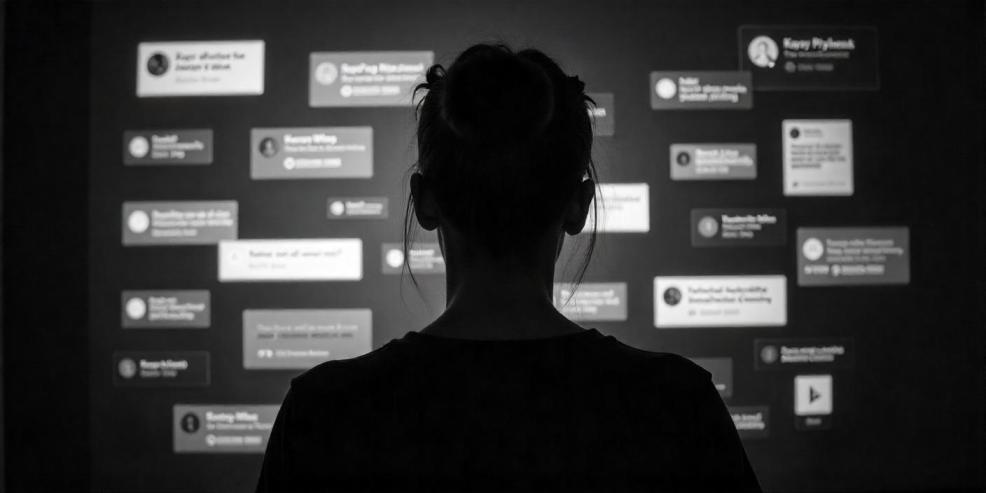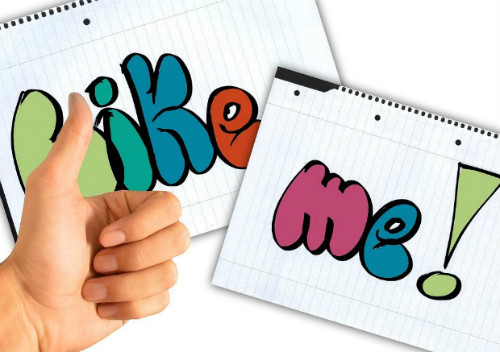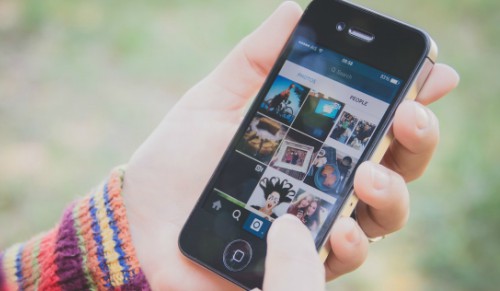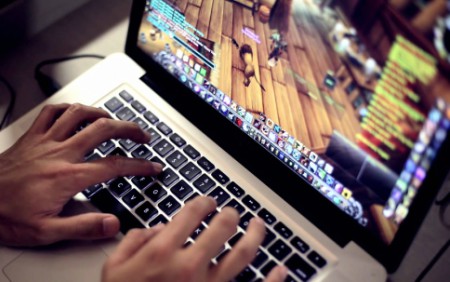
Social media has become a huge part of our culture and our society. It’s something that we deal with all of the time. What are the positive and negative effects of social media on our society and mental health? Well, there are some upsides and there are some downsides.
Posting on social media about birthdays, celebrations, or accomplishments in life allows us to share those occasions with our family and friends, no matter where they are, and that is a powerful tool. However, social media, which can be really beneficial, can also be harmful, highlighting the positive and negative effects of social media. Let’s discuss the pros and cons of social media for society in detail.
Negative Effects of Social Media

1: Unreal expectations
Social media can make some people have unrealistic expectations or a negative body image. You can scroll through many different social media sites and find a sea of beautiful people with perfect bodies. Walk into any public place, and you’ll see a more realistic version of what society really looks like. Not everyone is gorgeous with a perfectly toned body.
Many times it took 64 photos or an hour of touch-up on a photo editing software to produce that immaculate version of them. Next time you’re scrolling through the sea of beautiful people, keep in mind that just because someone looks in great shape in a photo doesn’t mean they’re healthy or happy, and no one rolls out of bed in the morning and looks stunning.
2: Loneliness and isolation
Social media can have an effect on loneliness and make some people feel more isolated. More and more studies are showing that the more a person spends time on social networking sites, the more likely they are to feel isolated and to tend to have less engagement with others.
This feeling can be enhanced by seeing photos or videos of friends having a great time at an event that they did not or could not attend, making them feel like they’re missing out. Remember, social media is not a good substitute for real in-person face-to-face interactions and in many cases portrays a distorted version to the viewer.
3: Sleep issues
Too much social media can lead to poor sleep patterns and a lower quality of sleep. Many people get in bed and reach for that phone one last time before going to sleep. Check the socials for about 5 minutes and then bedtime. Well, an hour and a half later, they’re still checking the socials for that final time.
It’s easy to just whisk time away, getting caught up by the powerful algorithms these sites hook people with. Research is also showing that exposure to the light emitted by devices can also disrupt the production of melatonin in the body, which helps regulate sleep. And the mental arousal prior to sleep can also be detrimental to sleep.
A good strategy is to keep devices out of reach from your bed and don’t allow yourself to go down that rabbit hole.
4: Mood swings
Social media can have severe effects on some people’s moods, from envy and jealousy to downright anger. Viewing post after post of friends, family, and even strangers having a great time on vacation, or buying a new car, or completing an expensive home renovation can cause jealousy in some people.
Certain political posts or posts about current hot topic issues can evoke anger and then decade’s long friendships. For some people, getting bombarded with social media posts about various things can actually change their mood, walking away from the device angry or envious.
If social media is affecting you this way, it’s probably negatively affecting your health. And maybe it’s time to unplug and take some time off or at least decrease the amount of time you’re spending on social media.
5: Self-absorption
Social media can cause self-absorption in some people. These social media platforms provide a vehicle for people to advertise themselves. A great photo or video walking on the beach, then one hiking on a trail, then one at a four star restaurant and finish it off with a great shot with the moon in the background.
Looks like these people had great vacations or they spent all their time trying to set up the perfect shot to post on social media. And we’re stressed out because of this, the whole time they were on vacation. There’s nothing wrong with taking photos and sharing them online, but don’t let it become about self promotion and get in the way of actually enjoying your time out with people.
6: Relationship issues
Social media can also negatively affect relationships. If you go out to a restaurant and take a look around, you’ll see many people, phone in hand scrolling through their social media accounts, sometimes even all four family members at the same table doing it.
When you go out to spend time with family and friends, this is when real social connections happen, and these social interactions are beneficial to your health. Getting to sit and talk with other people helps us to unwind in an enjoyable, stress free environment. So when you go out to socialize, be present and actually socialize and leave the phone alone.
7: Influence eating habits
Viewing post after post of beautifully cultured plates of food can actually make you eat more. Some studies have shown that looking at pictures of food can raise the levels of ghrelin, a hormone that stimulates hunger, and even viewing photos or videos of social peers eating can influence our own eating habits.
So, in both of these cases, hunger and eating is triggered by social media, not by how much we’ve already eaten or if we’re even hungry. Be mindful, if you’re scrolling through your accounts and suddenly desire a glazed doughnut, ask yourself if you’re actually really hungry.
8: Social media Addiction
Social media can also be extremely addictive. It’s easy to check in on socials and scroll here and click here and watch this clip and that clip and boom! 3 hours has passed by, gone just like that.
Dopamine is a neurotransmitter that is released in the brain that plays a role in feeling pleasure. It’s released when we eat certain foods, when we are intimate with a partner, it can even be released during positive social interactions, and social media can also trigger a dopamine release.
This can happen from getting likes or follows or subscribers on the social platforms or from getting notifications from these sites. You can even get a dopamine kick from just scrolling and clicking through, looking at picture after video after picture. The dopamine train can be difficult to get off of, so be conscious of your relationship with social media and keep your usage to a rate that is healthy for you.
9: Depression and sadness
Social media can also cause depression in some people. People only post the highlights of their lives, picture-after-picture or video-after-video of how great their life seems to be. They’re not going to share that they just failed to test, or had authorities show up to their house because of a domestic dispute, or that they themselves are struggling financially.
When you’re only seeing the highlights of others, it can make you feel like you lead a boring uneventful life, which can lead to feelings of sadness, low self-esteem and even depression.
Positive Effects of Social Media

We hear about negative effects all the time, but what are the positive effects of social media on our society and mental health? Let’s take a look at that in detail.
1: Find Almost Anyone
Social media technologies that allow users to create and share information with others, examples include sites like Facebook, Instagram, Snapchat and Twitter. You can look up someone you haven’t heard from in years and you can find out some basic information about them. It is easier now to find out what’s going on with people than it ever has been, and it’s probably going to get even easier as the technology develops.
2: Connect with People
One of the greatest pros of social media is how easily and quickly it allows us to connect and communicate with others. Most of the time for free, we can get news in real time and message each other instantly. Long gone are the days of having to write letters, and we no longer have to rack up expensive phone bills just to call each other.
Social media profiles also allow us to represent ourselves and connect to people with similar interests, which is really useful for dates and also in the job market. People can market themselves to potential employers who are in turn more easily able to find people on sites like Facebook and LinkedIn.
3: Share a Common Challenge/Interest
Social media has made it more obvious than ever that we are not alone on this planet and we are not alone in the struggles that we’re having. This tends to be especially true with those who are experiencing some kind of a specific life challenge or a health concern when they post that on social media, what happens?
Well, the friends and the connections start to come out and say, oh, we have had a similar experience, or they’re able to connect with that person in a way that shows empathy and understanding. This leads to another benefit of social media, which is the formation of groups who share a common challenge or interest.
This is another thing that helps us to feel less alone and more connected with the people that we share the planet with. Most of the published opinions out there seem to focus on the negatives or the downsides of social media. And I think that what it comes down to is having a real human connection as opposed to a more superficial or phoney or fake connection. That seems to be the real key.
4: Access to Information
The other thing social media gives us is lots of information. Sites like YouTube, Facebook or Twitter allow people to write posts and share videos to millions of others. Furthermore, many people now get the majority of their news from sites like these, which can be accessed in real time and stay up to date almost to the second. This arguably results in people being better informed.
Sites like YouTube are also beneficial to children and adults alike who can because they can use them to watch educational videos. More information that can be accessed quicker means we become more productive, right?
5: Motivation and Inspiration
On a more positive note, one of the advantages of social media connectivity is that it allows us to inspire others to do things. Major social movements have originated on social media, like the Black Lives Matter movement and Occupy Wall Street. Furthermore, social media can increase voter participation as well as this.
On a smaller scale, people deciding to make positive lifestyle changes like losing weight can share this on social media platforms, causing a domino effect which inspires others to make similar lifestyle changes.
Conclusion
It can be a good idea to limit your social media time and understand that no one leads a life that’s always full of joy and pain-free. Remember, you’re only seeing what people want you to see. Social media has plenty of positive and negative effects as well as good and bad effects, and some of the negatives can be really harmful, especially for students and teenagers.
As with most things in life, it usually comes down to moderation. All right, my friends, hopefully you got something out of this article.



